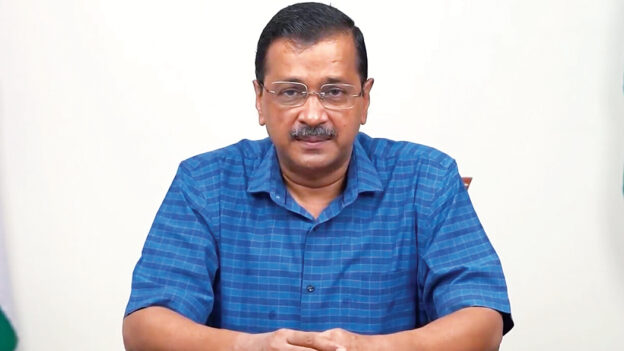The Supreme Court bench comprising Justice Surya Kant and Justice Ujjwal Bhuyan on September 13 granted bail to Delhi Chief Minister Arvind Kejriwal in a money laundering case filed by the Central Bureau of Investigation (CBI) against him. Kejriwal was arrested on June 26 by the CBI, before his hearing commenced in the Supreme Court for bail in the Enforcement Directorate’s case against him in the liquor policy scam.
Following the conditions, Arvind Kejriwal resigned as Chief Minister, and in his place Atishi Marlena has been made the Chief Minister.
With his bail, the Aam Aadmi Party is rejoicing as earlier the apex court had given bail to the former Deputy Chief Minister, Manish Sisodia and Rajya Sabha MP and senior leader of AAP, Sanjay Singh, besides, K. Kavitha, MLC and daughter of former Chief Minister of Telangana, K. Chandrashekar Rao. The bail for these leaders, AAP says is vindication of their claim that the Centre had falsely implicated them.
Bail conditions
The two judges delivered separate judgments, but agreed that Kejriwal satisfies the triple condition for the grant of bail. The judges said that as the chargesheet had been filed in the case and that the trial is unlikely to be completed in the near future, it granted him bail with the condition that he cannot visit the office of the Chief Minister and the Delhi Secretariat. Importantly, he is not to comment on the case while on bail.
Justice Surya Kant said that there is no impediment in terms of arresting a person already in custody for the purposes of investigation, whether for the same offence or for an altogether different offence. The Appellant’s arrest by the CBI was thus entirely permissible, in light of the Trial Court’s order dated June 25, 2024. The judge said the evolution of bail jurisprudence in India underscores that the issue of bail is one of liberty, justice, public safety and burden of the public treasury, all of which insist that a developed jurisprudence of bail is integral to a socially sensitised judicial process. The judge added that Kejriwal will not make any public comment on merits of the case and that the conditions imposed in the Enforcement Directorate matter shall apply in this case also.
Justice Ujjal Bhuyan said in so far as the arrest of the appellant by the CBI is concerned, it raises more questions than it seeks to answer as for 22 months, the CBI did not arrest him but after the Special Judge grants regular bail to the appellant in the ED case, the CBI sought his custody.
“In the circumstances, a view may be taken that such an arrest by the CBI was perhaps only to frustrate the bail granted to the appellant in the ED case.” The judge added the power to arrest is one thing but the need to arrest is altogether a different thing. “Just because an investigation agency has the power to arrest, it does not necessarily mean that it should arrest such a person.”
Justice Bhuyan said that the CBI should not be perceived as making the arrest in high-handed manner and must dispel the impression that it is a ‘caged parrot’ of the Central government.
The Judge said that the CBI, being the primary investigative agency, must not give any indication that the investigation was improperly conducted. Indeed, it is imperative to make every attempt to dispel any impression that the inquiry is not conducted impartially and that the arrest was made in an arbitrary and discriminatory way.
Additionally, Justice Bhuyan said, “I have serious reservations on the conditions which bar Kejriwal from entering Secretariat or signing files, but I am not making comment due to judicial restraint as it was in a different ED case.”
Star campaigner
The Aam Aadmi Party which is celebrating Kejriwal’s return said that he will continue to oversee governance and work in Delhi “will not stop”. “Arvind Kejriwal is the chief minister of Delhi, who heads the council of ministers and oversees governance via ministers of various departments. He is fully empowered to give directions to all his ministers so that work can be done in public interest,” AAP said in a statement.
“The only files that are signed by the chief minister are those that have to be sent to the LG for which he has permission from Supreme Court. Therefore, no work of the people of Delhi will stop,” it added.
Several important policy decisions, including the flagship Mahila Samman Nidhi Yojana – a scheme to provide financial assistance of ₹1,000 to all women aged above 18 – which was announced in the Delhi budget this year; dearness allowance for daily wagers; Delhi Start-Up Policy; Dilli Bazaar Portal; Cloud Kitchen Policy; Food Truck Policy; City’s Logistics Plan; Delhi Electronic System Design, Manufacturing, and Refurbishment (ESDMR) Policy 2022-27; and Industrial and Economic Development Policy 2023–33 are ready and need approval of the cabinet which is headed by the CM.As AAP’s star campaigner, his release has come at an appropriate time for the party as it is contesting all seats in the upcoming Haryana Assembly elections.


